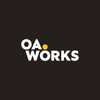Team Button Tuesdays: Penny and Minuette
Behind the Open Access Button is a team of international student volunteers. Get to know them on Team Button Tuesdays! This week we have Penny, our Strategy Lead, and Minuette, our Consultation and Partnership Coordinator.

Penny Andrews, Strategy Lead
Open Access is vital to me. I didn’t discover it as a student, or a librarian or as an academic. I didn’t graduate until I was 32. I started studying to be a librarian last September I didn’t start officially being a researcher until March this year (I’m a research assistant on a project where all the outputs will be made available openly). My OA story goes a bit further back.
I’m autistic, which means I have “special interests” that require me to know everything about them, and I’m a nerd, so ditto. Ever since I first got the internet during my first attempt at university way back in 1998 when I was 17, the internet has been the extension of my brain. Of course I used it to feed my obsessions. It wasn’t long before the days of “I appear to have read the entire internet” were over, and Google started being useful (before it started being evil) and threw up hundreds of thousands of web pages for any topic I gave it. And not long after that, I started hitting paywalls.
I’m not thick. I dropped out of the first year of university twice, but that didn’t mean I couldn’t understand these things called abstracts that would sometimes turn up when I was searching for information about my interests. It happened even more often when trying to find out more about the diagnosis of cerebral palsy I was given at 20, or my diagnosis of Asperger Syndrome at 30. Over time, these abstracts stopped being just adverts for print resources and there was an invitation to read the full text. Only that came with a huge price tag, and I was unemployed — only 15% of people with autism are employed full time. I didn’t have a rich mum and dad who could put articles on credit cards, I was a free school meals kid.
When I started finding OA copies of these articles, I started to feel included. I could read this stuff at last and not just what other people said about that stuff in the media; the actual research itself. This was the rise of repositories in action — on the whole it was pre- and post-prints I was finding, along with the odd completely free gold OA journal formed by interest groups or universities. Not being a scientist until later, that’s not unexpected. I started to feel indignant that it wasn’t like this for everything I wanted and needed to read and annoyed that seemingly useful articles I found for other people — ever the librarian — were only available to people who worked at universities that had subscriptions.
So I got my degree, with the Open University, knowing I could complete it this time because I could read and understand research papers. I started training to become a librarian. I worked in a repository. And I started volunteering for the Open Access Button, because so many people I met, both academics and librarians, couldn’t really see the problem and thought OA was some fad or distraction instead of absolutely vital to people like me who existed outside the academy with no access to research for over 20 years. The Button maps the problem, and it does what I’ve been doing for myself and others for years — tries to find a legal Open copy for users and show authors that people want them to publish Open Access or at least self-archive in Open repositories.. Now people are starting to get it.

Minuette Le, Consultation and Partnership Coordinator
Community-generated mapping can be an incredibly powerful tool that gives rise to new ways of contextualizing, understanding, and making sense of complex societal issues such as scholarly publishing. By participating as a user of the OA Button I hope that people will begin to gain more knowledge about the problems with scholarly publishing, and advocate for and experiment with new models of open access.
I am currently researching Open Access and emerging forms of scholarly publishing with the Hybrid Publishing Lab in Lüneburg, Germany where we critically engage with this topic within the Centre for Digital Cultures at Leuphana Universität. What’s important to know is that ‘Publishing’ is not equal to ‘making public’ and the term ‘open access’ does not always equate ‘accessibility.’ The paywalls to public research are something we don’t know a lot about — they are prevalent, irksome, and somewhat invisible to most of us since they are controlled by the corporate publishers.
I am a design researcher and I am working with the OA Button team to explore future directions and potentialities of Button 2.0. Mapping paywalls is just a start to what the Button is able to do and I personally see the button as an important research tool. It is going to be able to reveal some important statistics about paywalls and publishers for its community. What kind of papers are being requested and by what authors? Getting feedback and ideas from the community is incredibly important to the OA Button team and I hope that others will contribute to the OA Button’s development by sending us feedback. Later this year, members of the OA Button team will be at Wikimania and the Open Knowledge Festival in Berlin and I hope to see you at one of our future events!

